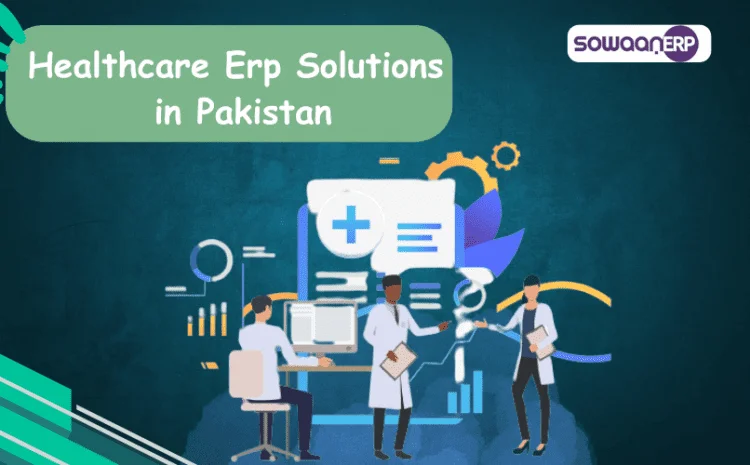
What is an ERP system for healthcare?
Healthcare ERP is an ERP software designed specifically for the healthcare industry’s needs. It may reduce communication barriers, provide a complete understanding of operations, improve process efficiency, and improve the level of care provided to patients.
Trends in Medical ERP Software
The incorporation of AI
Machine learning (AI) and advanced analytics have the potential to improve every element of organizational processes. It enables hospitals and other health institutions in achieving the high level of automation necessary to improve the entire customer engagement.
AI-enabled best healthcare ERP software solutions in Pakistan enable managers and doctors to obtain accurate and up-to-date information. This relieves users of the difficulty of sifting through enormous heaps of documents to establish the veracity of the content. Furthermore, AI adds to the benefits it delivers to other businesses by lowering costs, speeding up procedures, and preventing identity theft, among other things.
AI-assisted automated and simultaneous reporting substantially assists in delivering current solutions for applying the analytics-based notion of health care.
Data Implementation for Security
All data, from patient prescriptions to health records to customs forms, should be maintained safe by healthcare professionals and sent on to the necessary private entities with complete safety. Data security failures can have major consequences for patient well-being as well as the company’s reputation.
As a result, hospitals and clinics require specially built ERP Systems in Pakistan for the healthcare business that enable data digitalization and provide safe access to roles. Using this cutting-edge ERP software companies in Pakistan improve patient care, reduces the risk of data loss, safeguards key assets, assure privacy and safety, and ensure compliance with healthcare regulatory standards.
Strategic Planning Benefits from Predictability
ERP solution in Pakistan may be a big database including all types of operational data. When combined with predictive analytic skills, this software becomes a strong tool that may aid administrators, owners, or managers in developing strategic plans that will improve an organization’s overall efficiency.
ERP systems discover and assess problems using data from past years. With this data, decision-makers may prioritize activities and concentrate on areas requiring urgent improvement.
Flexible and accessible
Healthcare practitioners must stay current on data advances related to technology, medicine, and patients. This might result in a storage requirements constraint. Although the process of adopting more capable ERP software would be expensive and time-consuming, doing so may be advantageous.
Flexible health care system in Pakistan on the other hand is meant to grow with the company and maintain all procedures running. Their ability to manage the requirement for system updates allows them to handle the growing amount of data that rises with each passing day.
ERP Advantages in Healthcare Organizations
- This promotes data visibility and allows all staff access to the information they need at any time.
- Information on patients and data archives may be better handled and utilized with the help of ERP systems.
- Process automation lowers the danger of duplicate data and errors.
- Improved patient care and cost savings derive from outstanding Customer Relationship Management (CRM). It also contributes to an increase in the number of opportunities.
- The use of Electronic Health Records (EHR) instead of manual tracking enhances the efficiency with which information is shared and accessed.
- Companies using ERP systems in Pakistan in healthcare facilities provide better treatment and care methods for patients since all data is available in a single system.
- Much improved financial control since data has been consolidated, unified, and made more accessible to all parties involved.
Conclusion
Get a unified picture of financial data throughout the whole healthcare system. Plan more effectively, cut healthcare costs, and create a more flexible manufacturing system. When your business environment changes, you can more quickly implement new business models such as value-based healthcare and respond instantly.
